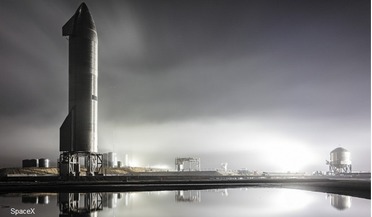 April 2019
On-board propulsion set to drive the smallsat revolution
April 2019
On-board propulsion set to drive the smallsat revolution
... a low power consumption but with adequate performance, constraints that most currently available systems from large space companies cannot meet. This has resulted in a strong market need in recent years for the creation of a number...
 August 2019
Space investment – from build-up to breakthrough
August 2019
Space investment – from build-up to breakthrough
... industry will have the chance to reap the benefits of breakthrough growth. The cost and timelines of investible space companies today are approaching the parameters that are familiar to traditional investment cycles. The industry is at a point...
 November 2019
Strategic role of government in space commercialisation
November 2019
Strategic role of government in space commercialisation
...grants than equity investments by a government investment fund. If the government’s goal is to make more funds available for space companies, as has been the case in several countries that do not have a strong private VC community, this support could...
 April 2020
Replacing hydrazine fuel with a greener alternative
April 2020
Replacing hydrazine fuel with a greener alternative
... reliability for end-of-life deorbiting, unless expensive, complicated workarounds are implemented. All this means that space companies are losing capabilities by using these new fuels, instead of gaining them. Propulsion systems are leading the...
 October 2020
Pandemic impacts - the state of the ground segment
October 2020
Pandemic impacts - the state of the ground segment
... interfaces, functionality and quality are key. Additionally, teaming arrangements and collaborative partnerships are critical for space companies wishing to maximise innovation and speed-to-deployment of their newest solutions. Collaborations allow...
 April 2021
Space industry trends in the pandemic
April 2021
Space industry trends in the pandemic
... and third in the world – to achieve orbit. Although we do not hear much about Chinese space activities in the US and Europe, Chinese space companies have been active in developing markets. Emerging leaders will likely expand to compete globally with...